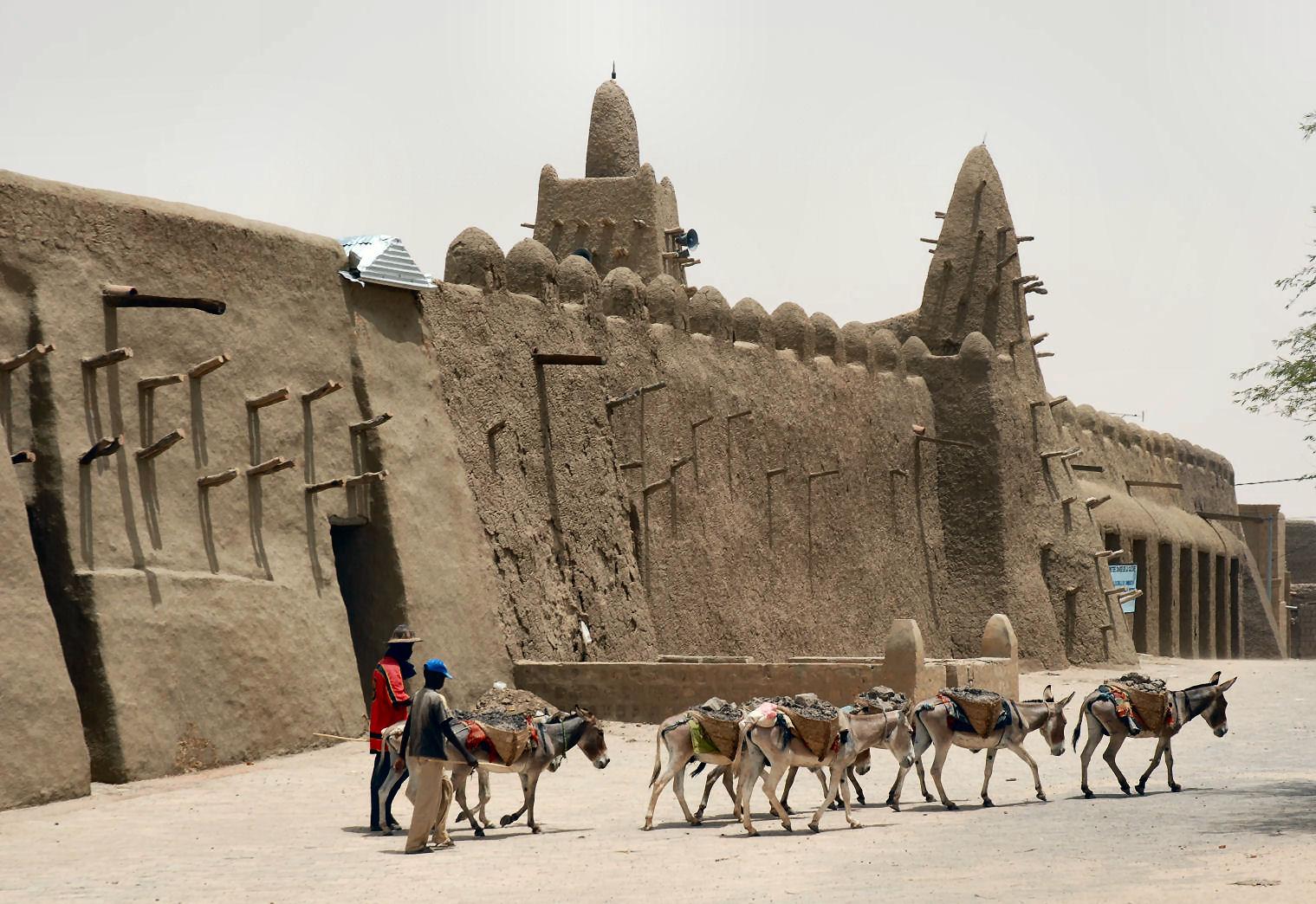Timbuktu, located in Mali, is an ancient city renowned for its historical significance as a center of Islamic learning during the 15th and 16th centuries. Situated at the crossroads of the trans-Saharan trade routes, it played a vital role in the exchange of goods and the spreading of culture, ideas, and scholarship. The city is famed for its ancient universities and centers of learning, such as the Sankore Mosque, which housed thousands of manuscripts and attracted scholars from across the Islamic world. Timbuktu's libraries became repositories for works on religion, law, and science, marking it as a beacon of knowledge.
Culturally, Timbuktu serves as a symbol of African heritage and intellectual history. It represents a period when Africa was a hub of trade and scholarship, countering narratives that overlook the continent's contributions to global knowledge. Notable landmarks include the aforementioned Sankore Mosque, the Djinguereber Mosque, and the Sidi Yahya Mosque, each representing the distinctive Sudano-Sahelian architectural style.
Geographically, Timbuktu lies on the southern edge of the Sahara Desert, near the Niger River, offering a unique desert landscape. Its climate is hot and arid, characterized by extreme temperatures and minimal rainfall. This harsh environment contributes to the city's historical architectural styles, designed to cope with the severe weather conditions.
One of the most notable events associated with Timbuktu is the Festival in the Desert, which celebrates Tuareg culture and music. This event attracts visitors from around the world, emphasizing the city’s lasting cultural significance. Although political instability has impacted tourism, Timbuktu remains a symbol of resilience and cultural pride for Mali and the broader Sahel region.
Timbuktu's rich history has earned it a place on the UNESCO World Heritage List, recognizing its global importance. An interesting fact about Timbuktu is that, contrary to its legendary remoteness, it was historically a vibrant hub of commerce and learning. The city continues to captivate historians and travelers alike, with its legacy as a center of enlightenment in Africa.
 Flickr user: Emilio Labrador Santiago de Chile
https://www.flickr.com/people/3059349393/
, CC BY 2.0, via Wikimedia Commons
Flickr user: Emilio Labrador Santiago de Chile
https://www.flickr.com/people/3059349393/
, CC BY 2.0, via Wikimedia CommonsMaliAfrica
Nearby Places
Log in to write a review.
Sustainable Travel Tips
Plan Mindfully
- Choose direct flights when possible
- Travel during off-peak seasons
- Pack light and bring reusables
- Prefer eco-friendly accommodations
At Your Destination
- Use public transport or walk
- Support local businesses
- Respect wildlife and habitats
- Choose activities with minimal impact
Daily Habits
- Reuse hotel towels
- Take shorter showers
- Turn off lights/AC when out
- Carry a reusable water bottle
